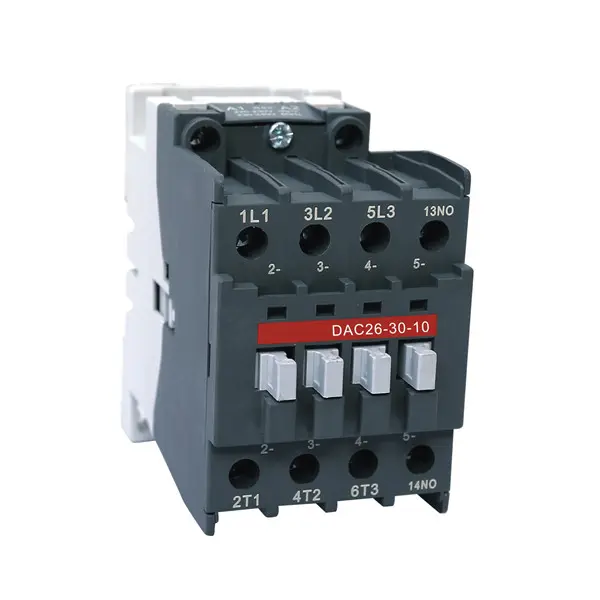A contactor is a term used often in electrical engineering, but the concept can be daunting to those unfamiliar with it. So, before we dive into the details of AC and DC contactors, let us briefly introduce the concept of a contactor.
A contactor is an electromechanical device used to make and break high power circuits. It works by using a low power signal to control a high power circuit. In other words, it is an electrical switch controlled by a solenoid. When an electrical signal is provided to it, the coil is energized, causing the contactor to close and allowing current to flow through the high power circuit.
Now that we have a basic understanding of what a contactor is, let us move on to the difference between AC and DC contactors.
AC contactors are specifically designed for use on alternating current (AC) circuits. They are commonly used in a variety of applications including HVAC (heating, ventilation and air conditioning) systems, motor control and lighting control. AC contactors can make and break circuits quickly and with high precision, making them ideal for applications that require fast, accurate switching.
DC contactors, on the other hand, are designed for use in direct current (DC) circuits. They are commonly used in applications such as battery charging and motor control. DC contactors work in much the same way as AC contactors, but they are designed to handle the unique characteristics of DC current. DC contactors typically have stronger solenoids than AC contactors because DC circuits require more energy to switch.
When selecting a contactor for your application, it is important to consider many factors. These include the voltage and current requirements of the circuit, the switching frequency, and the specific characteristics of the application. Some contactors are designed to handle high current loads, while others are designed to switch quickly or withstand high temperatures.
In addition to these factors, there are many other features that may be important, depending on your specific application. For example, some contactors are designed to be compatible with specific types of control systems, while others may include built-in overload protection or other safety features.
In summary, contactors are an important part of many circuits and can easily switch high power circuits on and off. AC and DC contactors are designed to handle the unique characteristics of AC and DC circuits respectively, and there are several factors to consider when selecting the right contactor for your application. If you are unsure which contactor is right for your needs, it is best to consult a qualified electrical engineer or technician.
Post time: May-03-2023


